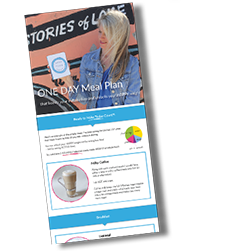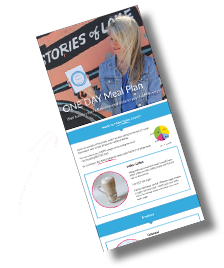
- Do you know the source of the meat you eat?
- At first I stopped eating meat
- If more people ate more thoughtfully a lot of the meat problems would be solved
It wasn’t until I sat in front of a pork chop after visiting my sick pet, that the disconnect struck me. How could I be emotionally and financially drained from doing anything possible to save one animal’s life while sitting down to eat another?
I love my pets because of all the funny things they do, our routines and the time we spend together. But this respect for animals should translate beyond my front door. Just like you don’t need to know all the people you come across each day to realize they have a whole world of their own; one that makes them just as important as you, every animals outside my house is equally important as those inside.
It was time to learn about the meat we eat
Because I’d been such an awkward eater for the 10 years I struggled to lose weight, the thought of not eating meat made me feel uneasy.
Even though I’d reached and maintained a healthy weight I was happy about for 13 years (at that point), I was worried about rocking the boat. Meat kept me full between meals. Then I could focus on everything else. I loved not being preoccupied by hunger! As well, it was still a novelty to go to a friend’s house for dinner and just eat what everyone else ate. Finally I felt normal in social situations that involved eating.
And it felt so extraordinary to feel ordinary.
But I LOVE animals. And it’s important to believe in every choice you make. You can’t beat a clear conscience.
So, in my typical self-defeating fashion, I decided to cut meat out completely.
Animals have the same range of emotions as humans
I saw a documentary called Ghosts in our Machines about the treatment of animals. It was part of a documentary festival. Out of the 14 documentaries I was seeing over 8 days, Ghosts was the one I wanted to see the least. I knew the facts and footage would be overwhelming. But it was also, for these same reasons, the one I knew I needed to see the most.
A really powerful statement that stuck with me was that despite animal intellect being different to ours, “We know animals won’t be going to the moon anytime soon,” their range of emotions are the same.
Animals feel love, fear, excitement, sickness, sadness, hunger, pain… just like we do.
Emotion is an intelligence and I believe it’s the most important one.
England’s treatment of animals is inspiring
Then I went to England to visit family and found it amazing that their meat industry is so transparent. You even know the name of the farm where the animal lived so you can be sure about the quality of the animal’s life. This information benefits both you and the animal. Good things are always WIN-WIN.
 My partner told me the higher standards in England were because the celebrity chef culture. It has a huge influence on what people tolerate. Jamie Oliver, for example, really pushes for farm animals to be treated humanely. In fact he joined a friend to create Jimmy’s Farm to build awareness. In other words, factory farming which is everywhere in North America, isn’t as common in England.
My partner told me the higher standards in England were because the celebrity chef culture. It has a huge influence on what people tolerate. Jamie Oliver, for example, really pushes for farm animals to be treated humanely. In fact he joined a friend to create Jimmy’s Farm to build awareness. In other words, factory farming which is everywhere in North America, isn’t as common in England.
Here’s a short definition of Factory Farming:
Confinement at high stocking density is one part of a systematic effort to produce the highest output at the lowest cost … <which> requires antibiotics and pesticides to mitigate the spread of disease and pestilence exacerbated by these crowded living conditions.
It’s not surprising that England is leading the way as they had animal rights in place before children’s rights! They are an animal loving nation. However, fear not for the children. As Mahatma Gandhi said:
The greatness of a nation and its moral progress can be judged by the way its animals are treated.
Be an educated consumer
When I voiced my dilemma about eating meat, I got strange reactions. People tend to think I’m “too soft” or that not eating meat because of animal’s rights is “cute”. This response is shocking.
I truly believe that anybody who educated themselves on the conditions of factory farming and other immoral methods of raising animals for food – anyone who actually understood what they are doing to the world and putting in their mouths – would in the least stop consuming these products, if not protest in a more powerful way.
As Ted from DietBlog states:
If more people would just eat more thoughtfully a lot of the problems with meat would be solved.
After 2 years of being torn up about whether or not to eat meat I think Ted hits the debate on the head. Ted takes a moderate approach to meat eating. Inspired by his words I decided to introduce meat back into my diet by being an educated consumer. Now I will only eat meat from animals who have been treated in a way that is ethical and sustainable.
The easiest way to stand by this decision is to buy meat from a source that takes the same stance.

(image via: Farm Sanctuary)
A Healthy Butcher makes good choices easy
I did a simple internet search for a butcher whose values are aligned with mine. I discovered the The Healthy Butcher is around the corner from me. On their website it says:
Do you remember the days when you could walk into your local butcher shop to buy fresh meat grown locally by a farmer who cared about his animals? When the cows would graze in large pastures? When the chickens had access to both indoors & outdoors and had time to sleep? And when growth was determined by the animals eating habits, not growth hormones and anti-biotics. For most of us, unfortunately, the answer is no. Industrialization over the last few decades has brought us to this day of antibiotic stuffed, water injected, assembly-line cut, pre-packaged meat. We aim to restore an area of the food industry that has wrongly disappeared.
What a great mission statement.
As soon as I entered The Healthy Butcher I saw the following quote in a frame:
Personally I think it would make sense for almost all of us to pay more money for less meat, of better quality. I’d go further and say we should be ready to pay twice as much for half as much meat – from animals that have lived infinitely better lives.
– Hugh Fearnley Whittingstall
Fancy a butcher suggesting you eat less meat!
Don’t be a bystander!
I’ve been all over the map trying to figure out the best way forward. Sticking with Ted’s suggestion (echoed by Hugh Fearnley Whittingstall’s) feels right. And on the days I don’t eat meat, there’s plenty of delicious vegetarian dishes to choose from.
For the first time since I got home from my vet, I felt good about my choices. I’m also ready to create awareness with solid information. It’s important to be clear there isn’t anything cute about being a socially conscious consumer.
Hopefully one day soon not eating meat unless it is from a place that sells ethical and sustainable food, like the Healthy Butcher, will be normal.
Until it is, I’m proud to be abnormal.
In a sentence, meat from a healthy butcher tastes better, gives the animals a great life and is better for you because it’s not packed with pesticides, antibiotics and growth hormones. When something is win-win-win what’s not to love? And eating less meat is good for the environment too.

 These kinds of meals and snacks unlocked my HAPPY weight 21+ years ago (I lost 30 pounds without dieting!)
These kinds of meals and snacks unlocked my HAPPY weight 21+ years ago (I lost 30 pounds without dieting!)
You'll also be subscribed to my newsletter. Don’t like it? Unsubscribe in one click

 These kinds of meals and snacks unlocked my HAPPY weight 21+ years ago (I lost 30 pounds without dieting!)
These kinds of meals and snacks unlocked my HAPPY weight 21+ years ago (I lost 30 pounds without dieting!)
You'll also be subscribed to my newsletter. Don’t like it? Unsubscribe in one click




Sharing what I learned makes the 10 years I STRUGGLED worth it
What socially conscious choices do you make?






Up until a few years ago, I was of the same mindset with which you started this well-informed article.
I too, then stumbled into The Healthy Butcher’s shop on Queen Street.
Taste, transparency, and the fact that I can feel good about what I put into my body keep me coming back.
Love that place… and this well written post!
Thanks Brian! I also love that the staff at the Healthy Butcher are so excited about everything they do! I just asked a simple question and you could just see how passionate they are. This is the sort of stuff kids should be taught at school so they grow up understanding the big difference small choices make! 🙂 Kelly